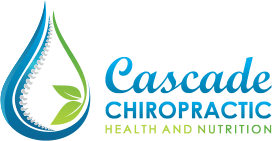If you have been around children, grandchildren, students or any other young people for that matter, you may have noticed that many of them are challenged with conditions that used to be reserved for adults. GERD/acid reflux, anxiety, depression, type 2 diabetes, asthma, allergies, and eczema.
I have infant patients who have been prescribed antacids for reflux, grade school children on medication for focus issues and anxiety, and high school kids on some serious acne meds and anti-anxiety prescriptions. As these prescriptions become more common, we might want to ask the bigger question, WHY?
Parents are afraid to give their precious kids Rxs, but don’t know what else to do. Many new patients to me are amazed that there is a conservative approach to these health challenges. I take it for granted that the general public knows that practitioners like me exist, but perhaps that is not true. We continue to spread the word!
Back to the underlying cause then…
- In the past 20 years obesity rates in children have more than doubled.
- Psychotropic drugs, anti-depressants and anti-psychotic drug sales for children have increased more than 50%.
- Children need their parents help and many are not getting it, either because they are working or are struggling themselves.
- Pre-covid, 40% of school districts had either eliminated physical education and/or recess. Since covid many more children rarely spend any time outdoors, reducing their activity level even further.
There are 3 basics every child needs:
- Clean water: ½ ounce per pound of body weight
- A good diet filled with veggies, fruit, protein and food fats
- Proper digestion
There are 3 habits of a healthy child:
- Exercise: 30-60 minutes of active exercise per day
- Sleep: where rest and repair happens. Consistent sleep reduces the likelihood of depression
- Play: 2-3 hours of play time per day. Relieves stress and creates joy
Studies have shown the following guidelines to be helpful.
Under Age 2
- 40% complex carbs
- 20% protein
- 30% fat
Pre-School
- 45% complex carbs
- 25% protein
- 30% fat
School age
- 40% carbs
- 30% protein
- 30% fat
Complex carbs include fruits and veggies at a ratio of 1:2 Whole grains are to be used no more than 2 servings per day. With a definite preference to unrefined grains like oatmeal instead of Cheerios.
Protein provides nutrients for growth and repair. Eggs, yogurt, beans, quinoa, chicken, fish, meat, nuts and seeds. (if there is an aversion to protein, digestion should be checked.)
Fats are a source of energy for infants, necessary for brain development and central nervous system growth. Examples are avocado, coconut milk and oil, flax oil, extra virgin olive oil, eggs, butter, nuts and nut butter, salmon, and DHA omega 3s for infant brain development.
Dietary challenges to avoid
- Pasteurized milk kills all beneficial bacteria and enzymes needed for digestion. Vit C, B12, and B6 are destroyed in this process as well.
- Soy milk, as little as 1 cup results in hypothyroidism with symptoms of fatigue and weight gain. Isoflavones are the plants natural pesticide and renders insects sterile and have been shown to have the same effect on humans. A swiss study demonstrated that adult women consuming 2C of soy milk per day received the estrogenic effect of a birth control pill.
- High fructose corn syrup requires the body to use ATP (energy) to convert it to glucose. HFCS is quickly turned into fat thus increasing the child’s risk of obesity. Fructose does not trigger the “I’m full” signal so you keep eating!
- Refined carbs have fiber, bran, wheat germ, enzymes and minerals removed. They often contain aluminum (bad for the brain) and bromine (bad for the thyroid as it replaces iodine).
What can you do:
There are some foundational supplements that I feel most infants to children can benefit from if their diet is less than amazing.
- Tuna oil: a clean source like Standard Process Chewable Tuna oil for children
- A probiotic or enzyme with probiotic combo, depending on the digestive needs of the child. Lact-Enz or Prosynbiotic are great choices.
- A multi-vitamin with bone support for skeletal growth and teeth like Cyrofood powder or tablets.
- Calcium Lactate during growth periods.
- Congaplex for immune support and colds, it comes in both chewable and swallowable.
- Minerals in the form of Min-Tran for focus, hyperactivity and some sleep issues.
If your child is experiencing difficulty with digestion, focus, immune system, sleep quality or mood disturbances please seek conservative help prior to going the prescription route. Its very often a nutritional imbalance not a drug deficiency.
Many parents and grandparents want to help, they just don’t have the resources. One of my favorites is the Weston A. Price Foundation, you can join for free and they have a Facebook and Instagram presence as well.
A great book is Nourishing Traditions for infants and toddlers and they have a grown-up version as well. I am available to answer your questions also, feel free to call the office, send an email, follow us on Facebook/Instagram and sign up for our newsletter if you haven’t already!

Contact Me Today
2371 Iron Point Rd, Suite 130
Folsom, CA 95630
916-844-2800
virbydc@gmail.com
https://www.facebook.com/dr.virginiairby
https://www.instagram.com/dr.virginiairby/
Sign up for my Newsletter: https://cascadechiropractors.net/newsletter-sign-up/

